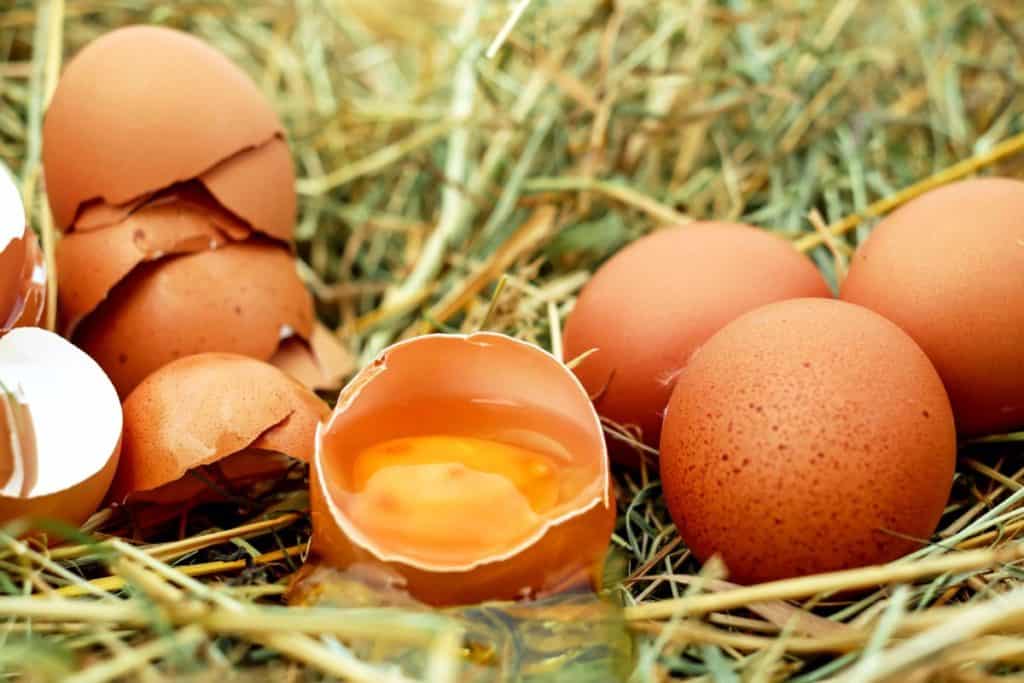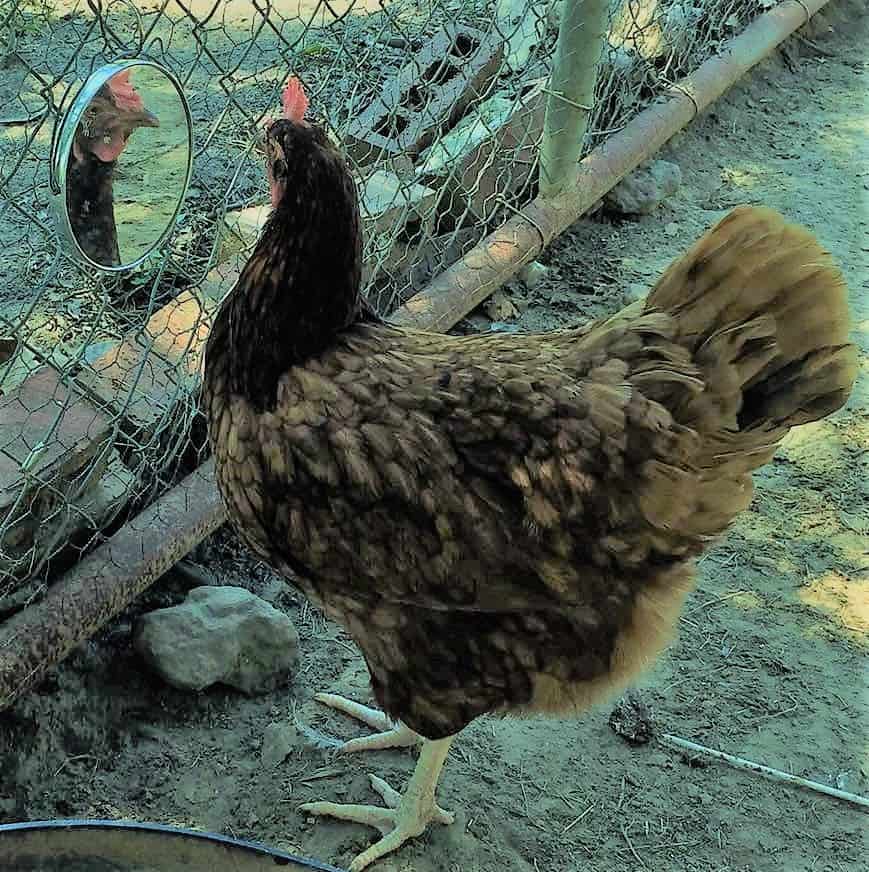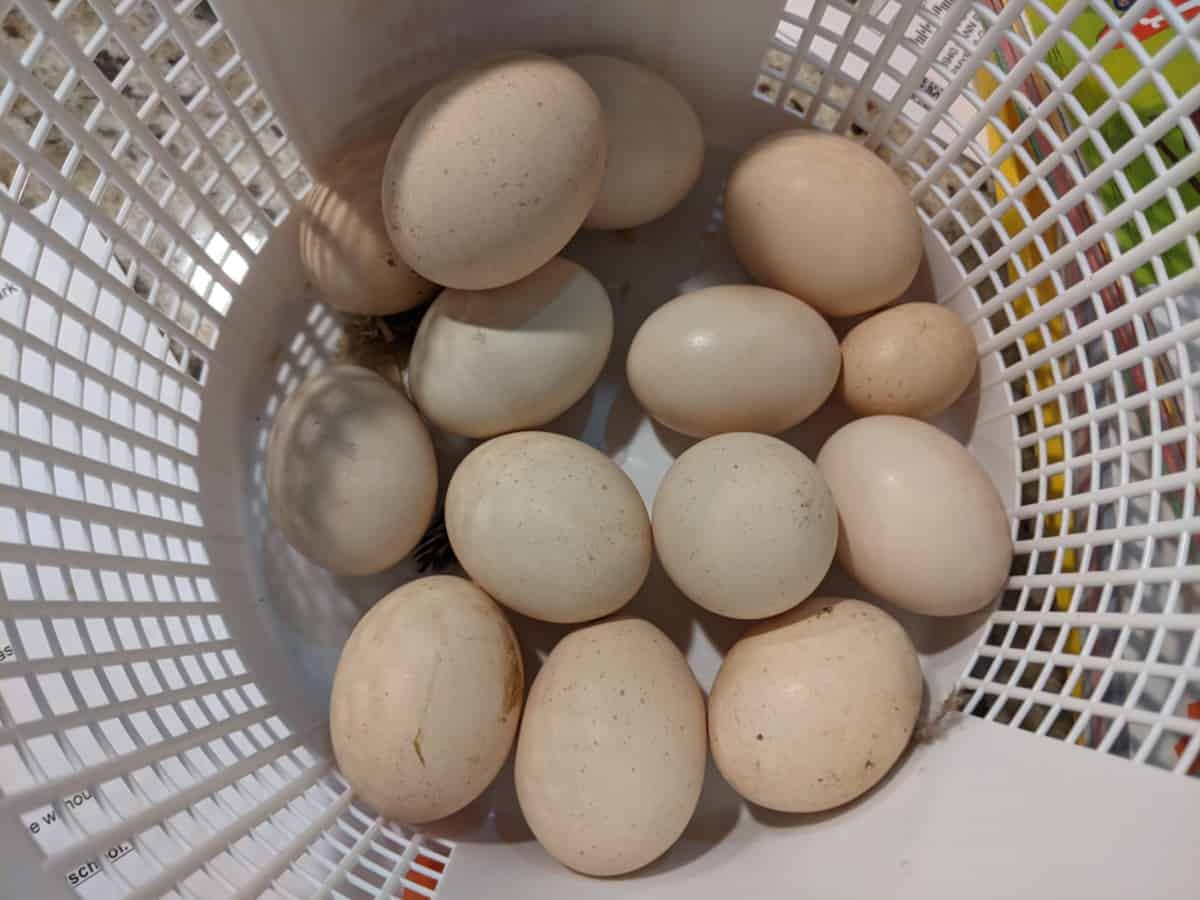As someone who has kept chickens for many years, I have learned several tricks to outsmart even the most cunning egg-eating hen in your coop! This is a common challenge faced by poultry owners.
You look forward to enjoying fresh laid eggs, but before you can collect them, the chickens eat them. Fortunately, it is a fixable problem. There are ways to stop your chickens from eating eggs.
One of the most common reasons that chickens eat eggs is a dietary deficiency. It can be corrected by ensuring that the birds are receiving food that provides sufficient protein and calcium. It may also be a bad habit. Several methods can be used to correct this behavior.
Why Do Chickens Eat Eggs?
Chickens will consume the eggs in their coop for two main reasons; a dietary deficiency or because bad habits may have developed due to a lack of space. Fortunately, by understanding the problem, there are solutions at hand.
Dietary Deficiency
To produce eggs, the chickens need a diet that is rich in both protein and calcium. If they do not receive enough of these elements in their food, they may resort to finding these elements from other sources.
Protein: A chicken’s daily diet should contain at least 16% protein. Check the label on your feed and ensure that this requirement is being met. Besides basic chicken feed, you can increase your chicken’s protein intake quite easily and inexpensively by providing protein-rich extras.
Things that work well for this are all types of fish (fresh or canned), mealworms, bugs, and sunflower seeds. Remember that chickens are omnivorous and will enjoy any extra meat scraps or trimmings that are available – even from your leftover roast chicken!
Calcium: Producing strong eggshells requires a lot of calcium from a hen. If she is not getting enough, she may start eating eggs to increase the amount of calcium she is getting.
It is not only her eggs that will suffer if her diet is calcium deficient. Hens may suffer from brittle bones, increasing her chances of breaking bones, especially in the legs and feet.
A great source of calcium for your hens is oyster shells. It is readily available as grit and mash in bags from all poultry supply stores.
One of the things that I do to add calcium to my fowl feed is recycle used eggshells. This is a simple and cost-effective way that you can add calcium to your chicken’s diet.
Save the shells from the eggs you use and when you have enough, place them on a baking sheet, dry them in the oven on low heat and crush them. This eggshell mash is rich in calcium and can be added back into the chicken’s feed.

NOTE: NEVER feed your chickens raw eggs in any form that resembles eggs. Broken or damaged eggs must be removed from the coop immediately. Chickens must never learn to associate eggs with food. The last thing you want to do is create a bad habit.
If you do have extra eggs that you can include in chicken feed, be sure to scramble or boil them first. Then mash until it is unrecognizable before you feed it to your flock.
Space
Poultry kept in confined spaces may develop bad habits like eating eggs. Chickens are by nature inquisitive birds, and keeping them in a confined coop is not ideal. They need space to stretch out and explore their environment.
If you can’t allow your birds to free-range, you may consider using something like a ‘chicken tractor.’ It is a large enclosed pen that can be moved to different spots. This mobile coop keeps your chickens safe while allowing them to forage in different areas.
Not only do the chickens love it, but it’s a great way to fertilize the ground in different places at the same time!
Fortunately, there are some easy ways to provide them with stimulation while they are in their coop. These will keep them interested and distract them from eating eggs.
Chicken Entertainment Options
Cabbage Ball
You’ve heard of a disco ball, but have you tried a cabbage ball? Drill a hole through the center of a large cabbage, thread a rope through to hold it, and secure it to the roof of the chicken coop so that the cabbage hangs it just above ground level. The cabbage should be reachable and but also swing freely as they peck it. Voila, your chickens will be entertained and also enjoy a healthy treat.

Chicken Swing
Walking about on the same level in a coop can get pretty boring. By adding a chicken swing, the birds will be able to get off the ground and enjoy the feeling of balancing as they sway back and forth.
It’s really simple to construct and can be made out of materials you already have. All you need is a thick branch that chickens can grip comfortably and two lengths of rope.
Secure the rope to each end of the branch and tie the other ends to the roof of the coop. The swing should be low enough for the birds to hop on with ease but high enough that they can enjoy the sensation of swinging.
Add a mirror!
Like most birds, chickens are fascinated by their own reflection. If you have any spare mirrors, place one at ground level in the coop. Your chickens will be fascinated, and it’s fun to watch them posing in the mirror.
Be sure to secure the mirror properly – if it falls, it may cause injury.

Forage simulation toys
Think of interesting ways to give your chickens treats. There are a variety of forage simulation toys that you can make to keep them entertained. One of the easiest things that I have used is a plastic bottle. Drill a few small holes all around the bottle.
They must be too small for chicken beaks to access but large enough for seeds or other treats to fall through. Fill with something tasty like sunflower seeds, replace the cap and watch as the chickens push it around in the hopes that they will score a treat.
Tricks to break the egg-eating habit
If you have corrected your chicken’s diet and provided them with stimulation to distract them, and this bad habit continues, then it’s time to try few tricks which may remedy the problem.
Be sure of the culprit! Poultry owners often assume that it’s the chickens eating eggs because they’ve observed them pecking at the remains of the eggshells. The chickens may just be finishing off what was started by rodents or some other pesky critter who has found an easy meal in your chicken coop.
So before you put any other steps in place, ensure that your coop is completely rodent-proof. If chickens come across a partially eaten egg left by a rat, they will definitely eat what’s left.
Nest Curtains: It may seem a little odd to put up ‘curtains’ at the entrance to your hen’s nest, but out of sight may mean out of mind. The laying hen may not always be the egg-eating culprit, and unless there is a dietary deficiency, an unrelated chicken is unlikely to specifically go in search of eggs to consume.
Every hen has a favorite laying nest and will make a determined effort to enter her specific little enclave. If you drape a cloth over the nest’s opening, she will continue to use that box.
While some poultry owners hang pretty little miniature curtains, there is no need to go to extra expense for this. Empty livestock feed bags can also work perfectly partially to cover the entrance to the nest.
Slant the nest boxes: Position your boxes so that eggs will naturally roll towards the back when laid. It will be less of a temptation for passing chickens who may have developed an egg-eating habit.
Plant fake eggs: A chicken that eats eggs has learned that eggs are delicious, protein-filled balls. Replacing the eggs with unpleasant alternatives may be able to break this habit. Plastic or rubber eggs or even a golf ball will frustrate your egg-eating fiend. I often use golf balls myself.
If that isn’t effective, some poultry owners have had success by filling eggs with mustard. Chickens have an aversion to the taste of mustard. If they crack open an egg only to find it is filled with a substance they detest, it can go a long way to breaking this bad habit.
To do this, you need to carefully blow out an eggshell and fill it with mustard. This can be quite a lot of work, so this can be used as a last resort.
Collect eggs frequently: If there are no eggs available in the nests, then there are no eggs to eat!
Conclusion
Keeping poultry can be fun and rewarding. Occasionally one encounters challenging behavior like chickens that eat eggs. By determining the cause of this behavior, it can be quickly addressed, and soon, you will be enjoying fresh eggs from your flock once again!

